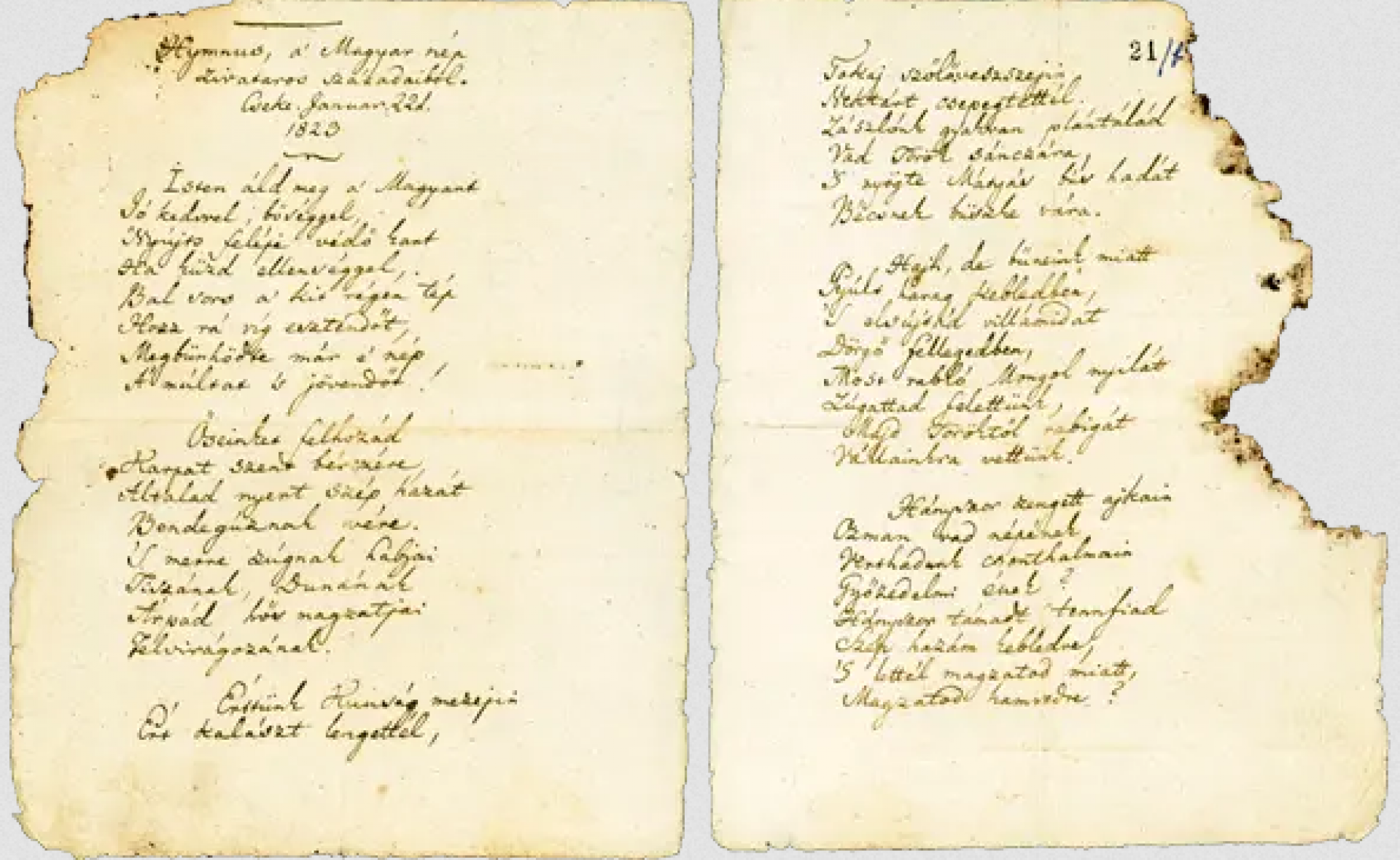The history of the Hungarian National Anthem, from the creation of the poem and then the song, has been continuously written to this day. Hungarian national prayer, as they call it, has a destiny. What does not change is the emotional relationship attached to it.
The Anthem was included in the Basic Law in 2011; its opening line became Hungary's motto when it was modified in 2012: "God bless the Hungarian".
All this reinforces the rightful aspiration to keep the Anthem true to Erkel's original intention, because the Anthem that we hear every New Year's, for example, differs from the original. Ernő Dohnányi re-arranged it, and with it he also changed the character of Erkel's music, and even distanced himself from Kölcsey's hymnic solitude. The verbunk-flavor that pervades the national music of the 1840s can also be observed in the Anthem. The smaller, mainly string orchestra and the distant bells of the fore- and after-play were closer to the intimate, prayerful mood of the poem.
In this spirit, Erkel's Anthem has been performed several times in the last twenty years, both in concerts and on recordings. In 2013, at the request of the Hungarian Olympic Committee, an authentic orchestral version was completed with the MÁV Symphony Orchestra, which is appropriate even in the time frame of international competition, and then in 2020, the recording of the Anthem, which can be sung by everyone, was performed by the Budapest Philharmonic Society and the Choir of the Hungarian State Opera House. In the international arena, the Hungarian national anthem can be widely known in its original form. So it is time to return to Erkel's original intention, true to the will of Hungarian national composer, in his country, under legal protection, according to the letter of the Basic Law: "Hungary's national anthem is a poem entitled Anthem by Ferenc Kölcsey with music by Ferenc Erkel."

